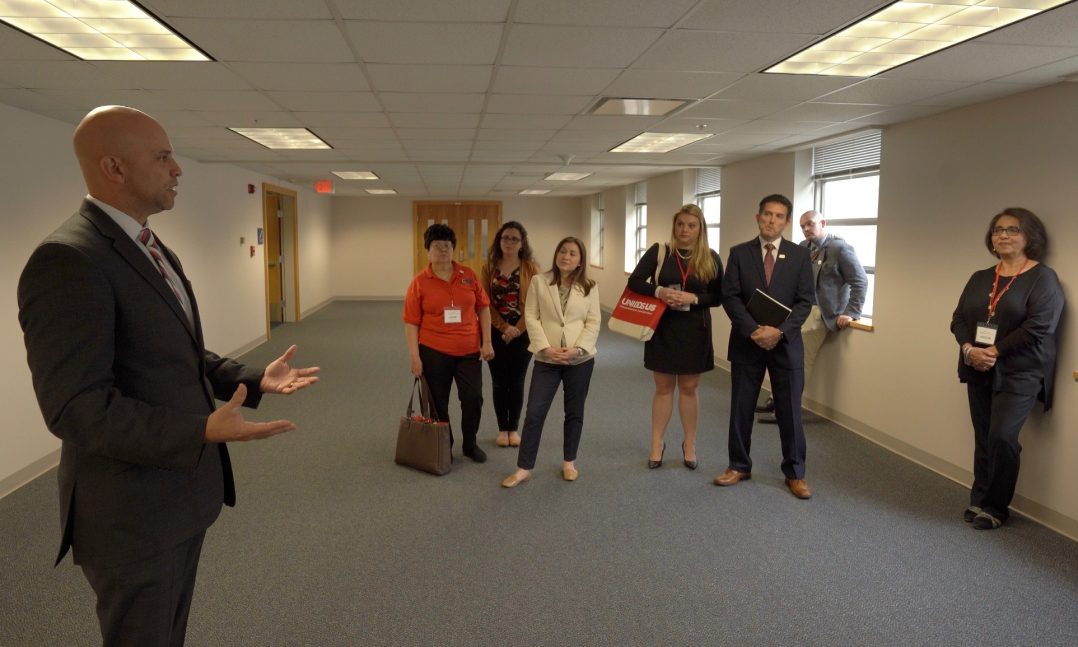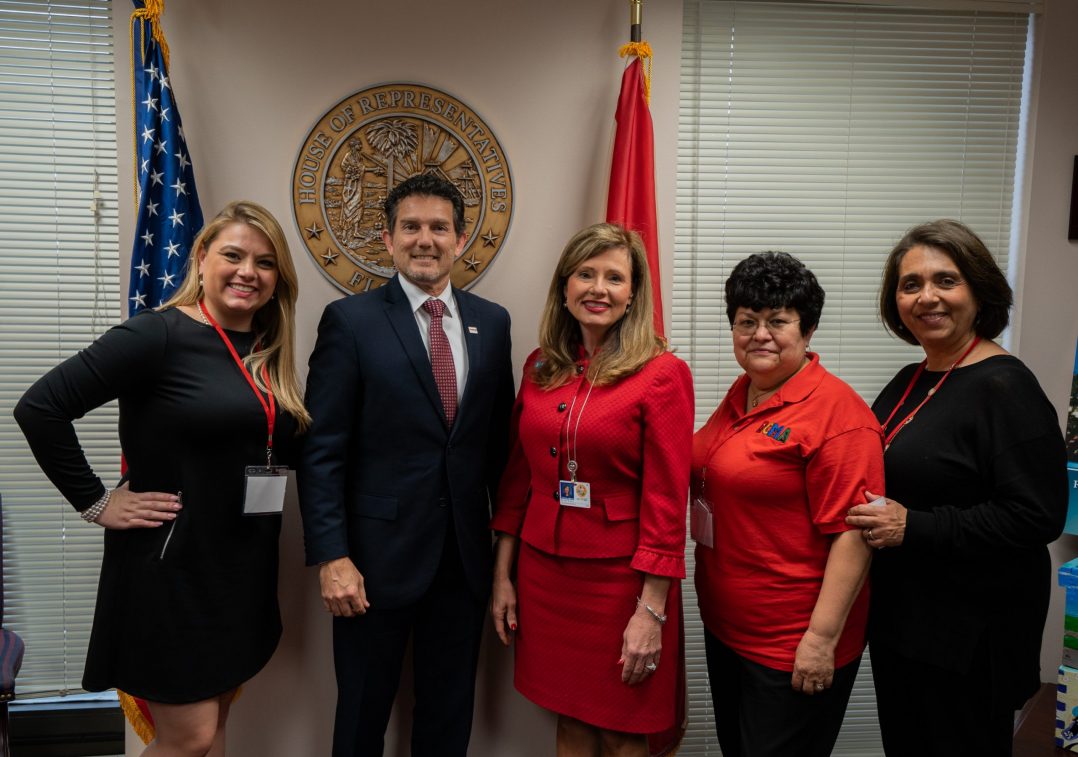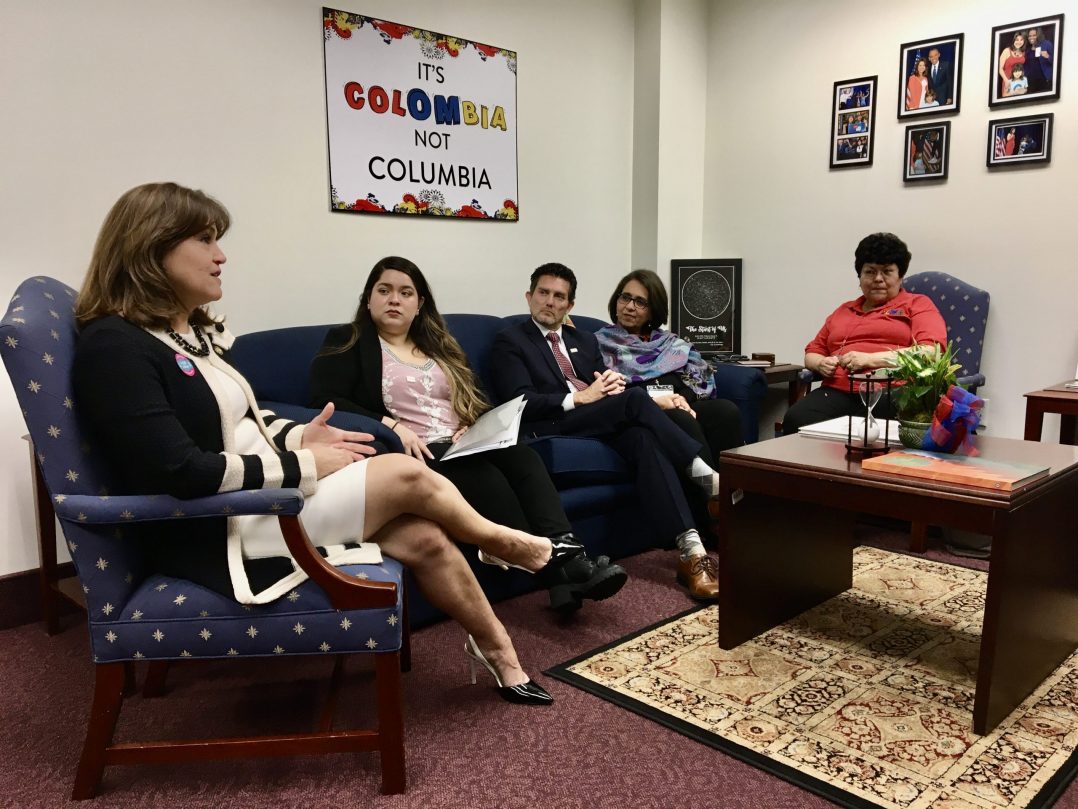Support for Native Language Assessments Resonating in Florida

A group of education advocates organized by UnidosUS learned last month that it can take many legislative sessions before a bill even gets a hearing in Florida’s state house. This would mark their second time lobbying for UnidosUS’s Native Language Assessment bill. After two days trekking across the capitol grounds for meetings, they were relieved to find new support from unlikely legislators, and that the members echoed all their talking points.
Supporters of Native Language Assessments in Public Schools (SB678/HB515) believe it will close achievement gaps in math and sciences for English learners (ELs) when compared to non-ELs, and in turn, prepare the state’s diversifying population for roles in a dynamic, globalized economy.
The Every Student Succeeds Act, the latest iteration of federal legislation mandating equal access to education for all school-aged children in the United States, already stipulates that state governments should make every attempt to provide native-language testing for ELs.

“As a civil rights lawyer, I care a lot about how our institutions take into account that fairness,” said Florida House Representative Dotie Joseph, a Democrat who represents the 108th District in Miami-Dade and focused on ELs while studying law at Georgetown University. According to her research at the United State Department of Justice, anytime there is a significant number of people in a community speaking a language other than English, the law requires federally funded programs to do everything they can to accommodate for that population in their native language.
“This is, in one sense, just trying to make sure we get into compliance with where we should have been already,” Joseph said.
Joseph, who emigrated from Haiti at the age of three, is one of several bill supporters who grew up in the United States as ELs. And several of UnidosUS’s Affiliate leaders were also ELs. Among them is Lourdes Villanueva. She told lawmakers she has built a career out of helping Florida’s children learn English in a more concise and gradual way than what she got growing up many decades ago in Texas. Back in those days, students who uttered as little as one non-English word in an otherwise comprehensive sentences would have their answer completely discounted. Today, she works as oversees farmworker advocacy for the Redlands Christian Migrant Academy (RCMA), an UnidosUS Affiliate, that opens doors to opportunities through affordable and culturally responsive child care and education from crib to high school and beyond. They strive to make sure students get a full five years of learning in both Spanish and English since that’s the time it takes for most people to begin to master any new language.
RCMA’s program is mostly focused on early childhood, with just a handful of charter schools providing instruction through eighth grade, so Villanueva is all too familiar with the struggle for those children who haven’t gotten a full five years in their bilingual program.
“It’s not like we’re excusing them from learning English because they all learn English, but our kids are so bright that it breaks my heart when I see that they go through an exam and it doesn’t really tell the true picture of their intelligence,” she said.

Every lawmaker the group met with showed sympathy toward these stories, and in fact, House Representative Melanie Bell, a Republican representing the 56th District in Central Florida comprised of DeSoto, Hardee, and part of Polk County, noted how exciting it was to see English learners, many of them migrant farmworker children, succeed. She even recalled the story of Brenda Alvarez Lagunas, 2019 class valedictorian at Mulberry High School in Polk County, Florida. The daughter of migrant farmworkers, Alvarez Lagunas addressed her graduating class by pulling a strawberry from a basket for every achievement she made.
House Representative Susan L Valdes (D-62nd District) was also sympathetic to these stories but warned not all her colleagues will be.
“You can legislate but you can’t change hearts,” she said, noting that old Southern politics and racial bias can be a strong obstacle in Florida.
But she said research could go a long way to show the most resistant see what’s in it for them.
“If we could just hone in on what the research says, and make decisions, not on political rhetoric but on what research says about academia, make policies based on research, and not the color of your skin or where you come from, or what language you speak, we would be able to have a more perfect bill and laws that would be that would be conducive to helping our nation be a world leader,” Valdes said.
“One of the questions I have is why are we testing students in a language that they still haven’t had the opportunity to learn?” said bill sponsor Representative Rene Plasencia, a Republican from Florida’s 50th District in Orlando who worked for many years as a local public school teacher with a diverse cross section of ELs.
Plasencia has often cited data from a Bizjournals report showing that if Florida were a country, it would be the world’s 17th largest economy.
“If you’re held back in school, you can’t participate in the economy at the full level, and that makes a big difference. We need every dollar. When we’re fighting for these appropriations, we need every dollar that can come in. There’s no reason to keep those dollars out over something that’s so easily addressed,” said Joseph.

And with the 2020 elections rapidly approaching, Florida Senator Annette Taddeo, a Democrat representing Florida’s 40th District in south Miami-Dade County, said it might be helpful to consider which communities have the most political clout. For example, Florida has seen a massive influx of Puerto Ricans fleeing their island’s recent natural disasters, as well as a series of economic and political crises.
“There’s a lot of politicians on both sides paying attention to the Puerto Rican vote, and this issue really hurts Puerto Ricans because they are American citizens, but they come here and their English is not where it should be, and it’s no fault of theirs,” said Taddeo.
Several mentioned that as a next step, advocates should collect data on states that have already implemented Native Language Assessments. In fact, the UnidosUS education team already has the numbers to show graduation rates among ELs are higher in Texas, a traditionally red state that implemented native language testing in the late 1990s. According to data from the US Department of Education, 74% ELs graduated within four years, compared to 90% non-ELs, but in Florida, only ELs had a graduation rate of 62% compared to non-ELs at 82%.
“Those numbers show that Els in Florida have a larger graduation gap than those of Texas,” says UnidosUS Education Policy Analyst Tania Valencia.
Taddeo welcomed ideas like that. “We’ve gotten a ton of conversation about it, a ton of media about it, a ton of people paying attention to it, and I think that’s good. The more we talk about all these red states that are doing it, that’s actually good,” she said.


